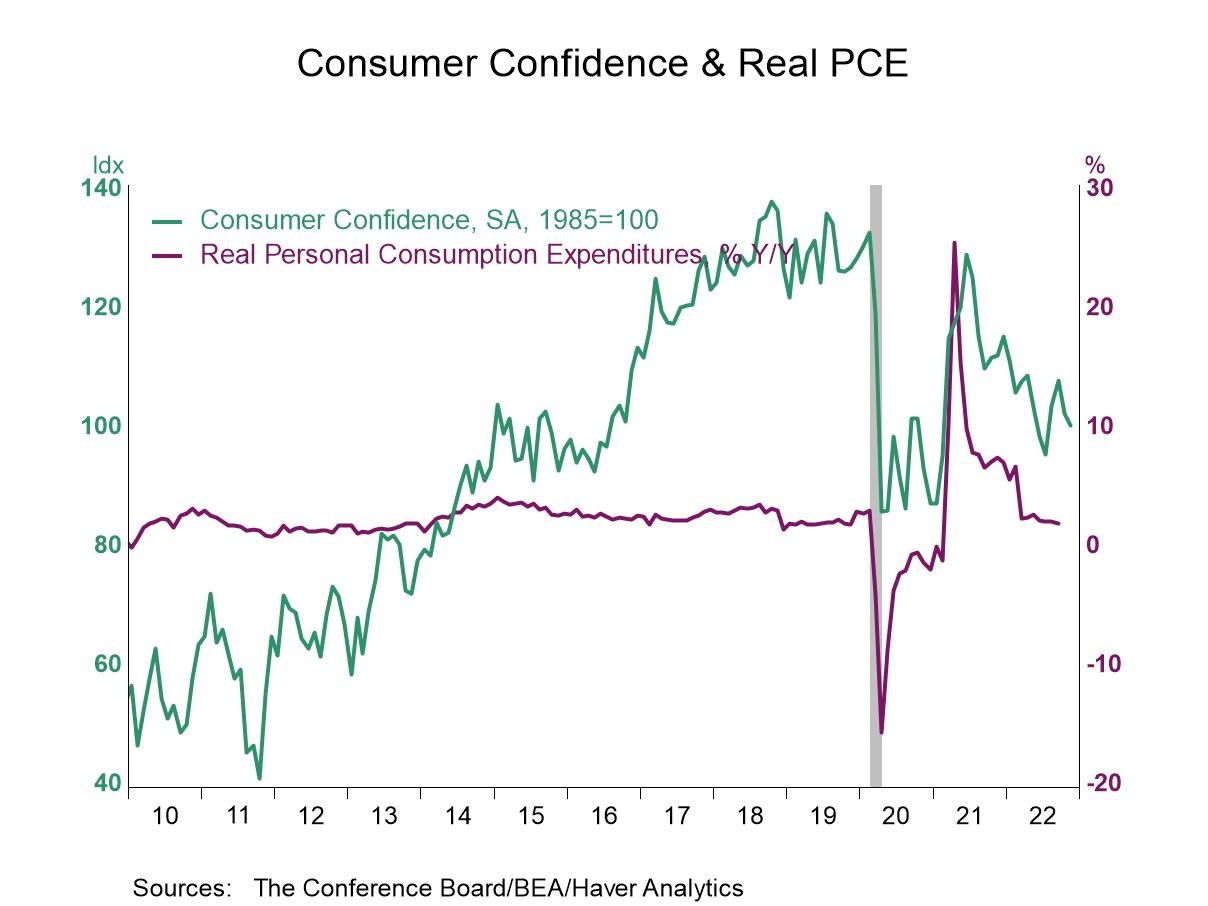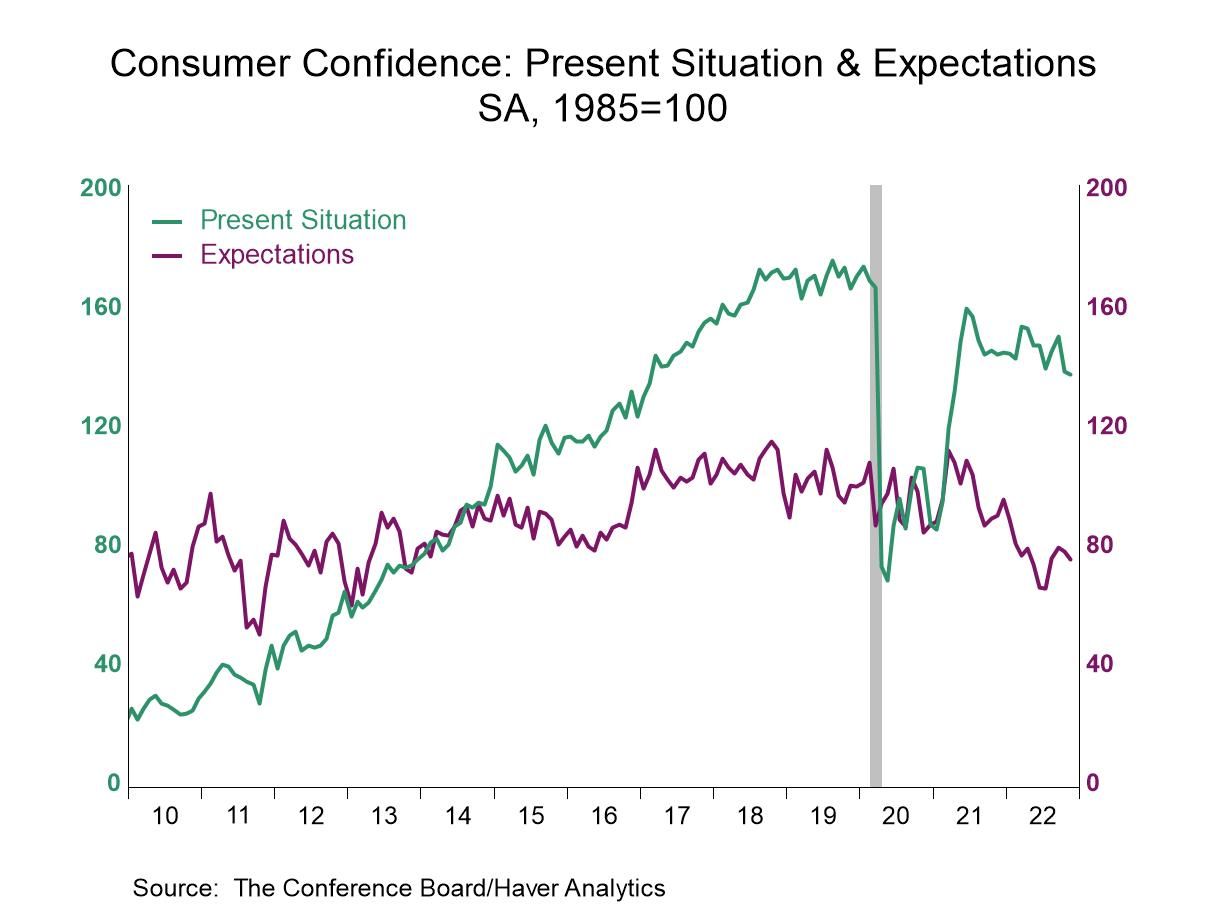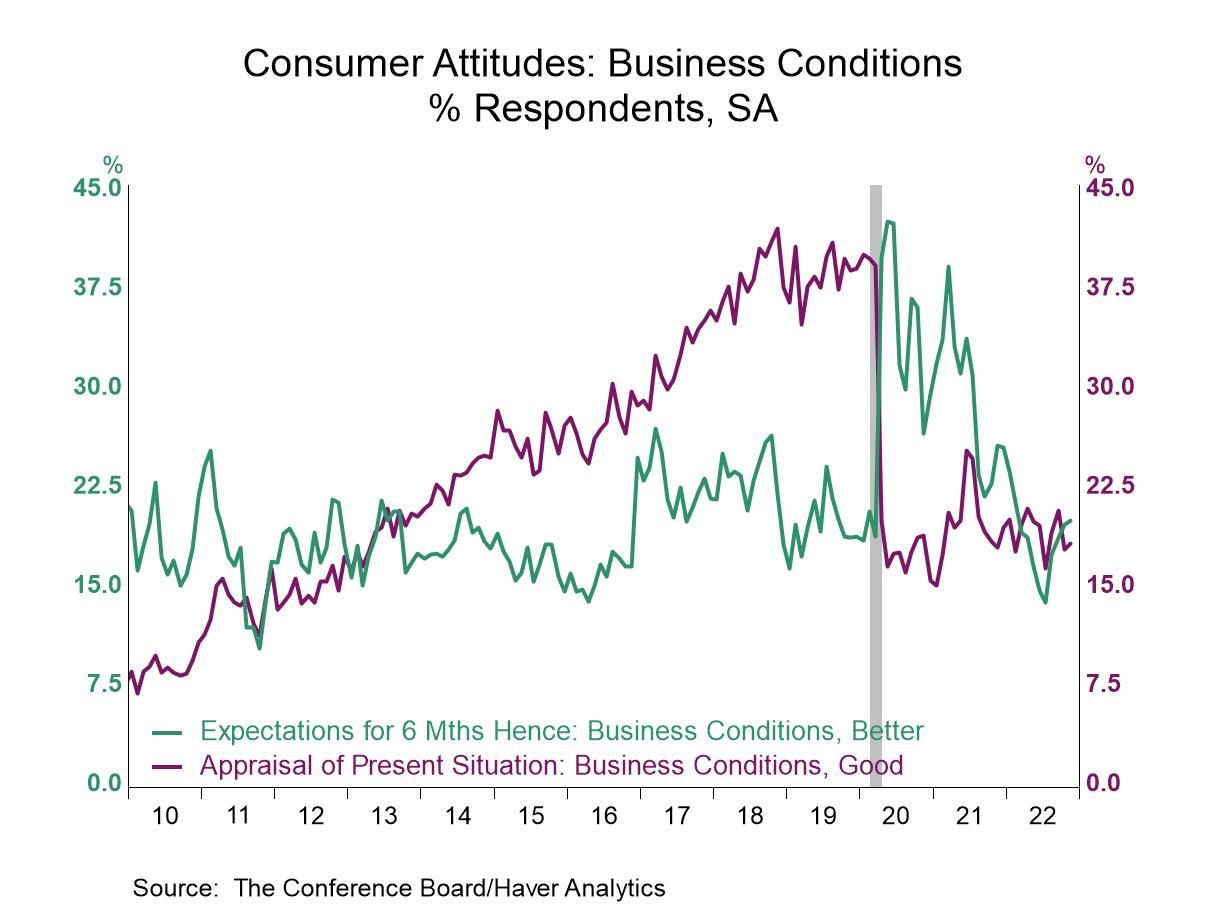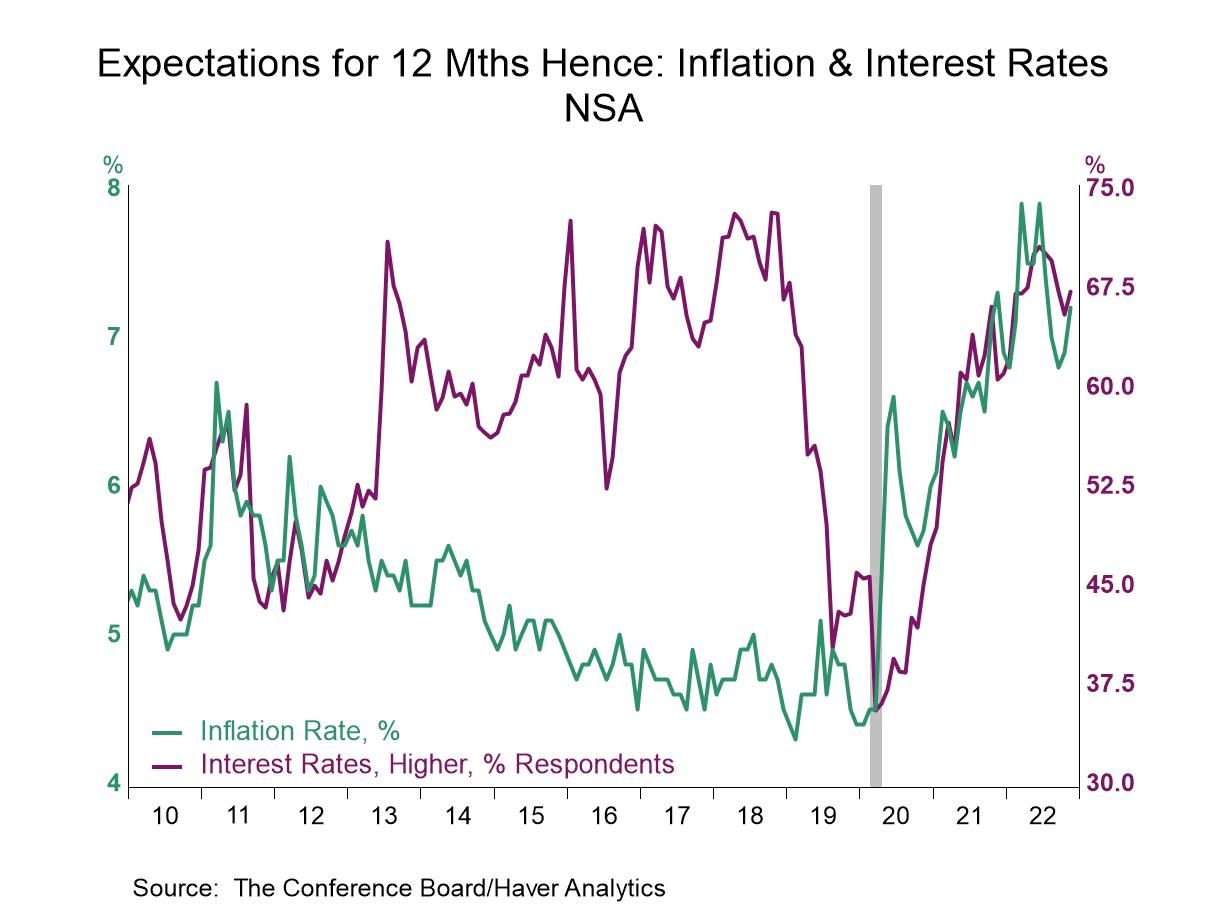U.S. Consumer Confidence Weakens in November
by:Tom Moeller
|in:Economy in Brief
Summary
- Present situation reading is lowest since April 2010.
- Overall expectations dim for second month.
- Inflation expectations rise again.


The Conference Board's Index of Consumer Confidence Index fell 2.0% (-10.5% y/y) during November to 100.2 following a 5.2% October drop, revised from -4.9%. The index was 22.3% below its most recent high of 128.9 in June 2021. A reading of 99.5 had been expected in the Action Economics Forecast Survey for November.
Consumers' views of both the current & future economic situations continued to fall this month. The Present Situation Index fell 0.9% (-4.8% y/y) to 137.4, the lowest level since April 2021. The decline followed a 7.7% weakening in October. The Expectations Index dropped 3.2% (-16.4% y/y) to 75.4 this month, after falling 2.0% in September. It remained 32.6% below its recent peak in March 2021.
Consumers' assessment of current business conditions improved slightly m/m as 18.2% of respondents characterized conditions as good, though it remained below the high of 25.2% in June of last year. Labor market readings showed slightly more optimism this month. The jobs gap, representing the difference between respondents indicating that jobs are plentiful versus those saying jobs are hard to get, rose to 32.8% in November, nearly the lowest level in 19 months. Calculated by Haver Analytics, this series has a 67% correlation with the unemployment rate over the last ten years. The jobs plentiful measure rose slightly from its 18-month low in October. The jobs hard-to-get measure held steady m/m but was 3.4% higher than its March low.
A higher 19.9% of respondents felt that business conditions would get better in six months, up from a July low of 13.7%. Nineteen percent of respondents felt there would be more jobs in six months, up from 15.1% in July. A lessened 17.2% expected income to increase in six months, still up from a 15.3% July low.
Inflation expectations continued to rise. The expected inflation rate in twelve months increased to 7.2% in November. It was the highest level since the reading of 7.4% in July and remained higher than the 4.4% low in January 2020. It stood below the 7.9% June high. An increased 67.2% of respondents expected interest rates to rise over the next twelve months.
The share of respondents planning to buy a home within six months fell to 6.4% in November from 7.4% in October, still higher than its 4.5% July low. Those planning to buy a major appliance fell sharply to 45.0% of respondents in November after surging to 52.4% in October. It remained above its 41.1% July low.
The Consumer Confidence data are available in Haver's CBDB database. The total indexes, which are indexed to 1985=100, appear in USECON, and market expectations are in AS1REPNA.


Tom Moeller
AuthorMore in Author Profile »Prior to joining Haver Analytics in 2000, Mr. Moeller worked as the Economist at Chancellor Capital Management from 1985 to 1999. There, he developed comprehensive economic forecasts and interpreted economic data for equity and fixed income portfolio managers. Also at Chancellor, Mr. Moeller worked as an equity analyst and was responsible for researching and rating companies in the economically sensitive automobile and housing industries for investment in Chancellor’s equity portfolio. Prior to joining Chancellor, Mr. Moeller was an Economist at Citibank from 1979 to 1984. He also analyzed pricing behavior in the metals industry for the Council on Wage and Price Stability in Washington, D.C. In 1999, Mr. Moeller received the award for most accurate forecast from the Forecasters' Club of New York. From 1990 to 1992 he was President of the New York Association for Business Economists. Mr. Moeller earned an M.B.A. in Finance from Fordham University, where he graduated in 1987. He holds a Bachelor of Arts in Economics from George Washington University.
More Economy in Brief
 Global| Feb 05 2026
Global| Feb 05 2026Charts of the Week: Balanced Policy, Resilient Data and AI Narratives
by:Andrew Cates






